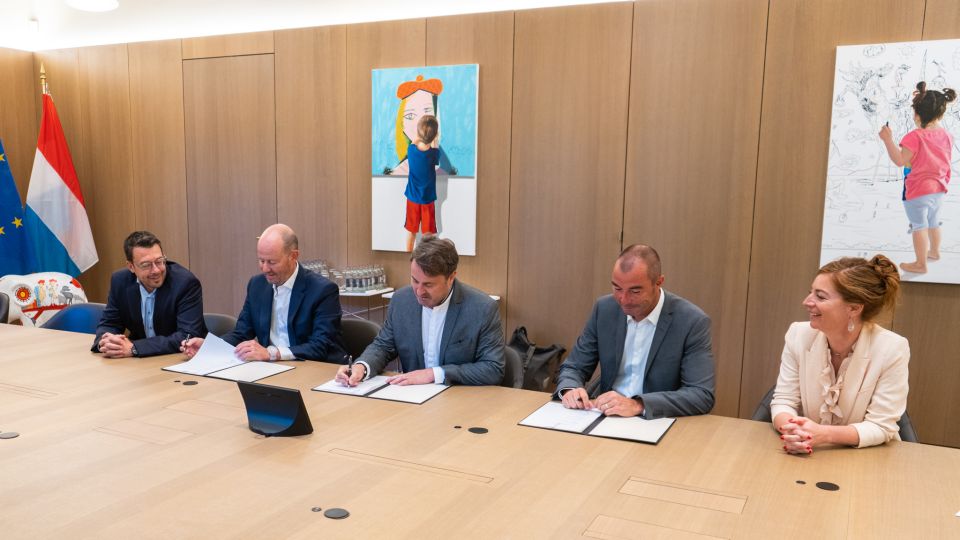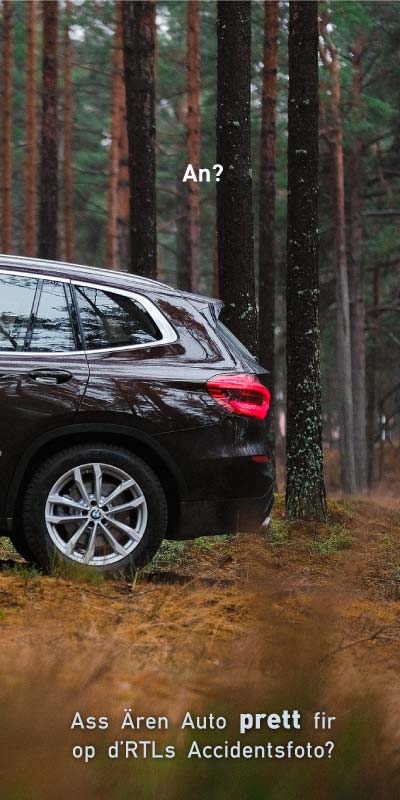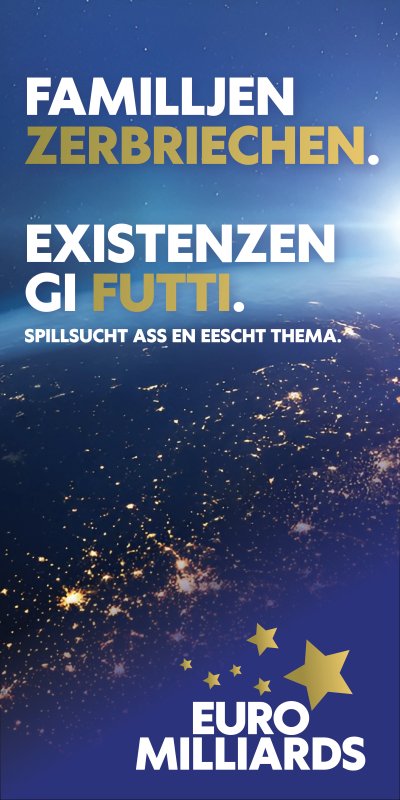NEWS - Empty promises, lies and dreams from RTL's convention (4)
What goals and missions does RTL have - besides making money?

Photo: ©SMC
Luxembourg has an extremely diverse population: many different languages, realities of life and views come together. In order for our society to understand and get to know each other, for our democracy to function, for everyone to have access to reliable and relevant information, for everyone to be seen, for wrongdoings to be exposed, we have a public service with a strong mission. Or do we?
Behind another forest of unspecific ideals (The information presented by RTL should be impartial, objective, pluralistic, analytical, clear, accessible, of quality, orderly, reliable and independent and correspond to what the public would rightly expect), subparagraph (h) of the current concession agreement between the state and RTL (CLT-UFA) is actually about the „missions and objectives“. However, it is more about content. It does not yet define exactly what volume different programs should have. In the respective chapters on radio, television and websites, more precise timescales are set out on this point - in the chapter on „missions and objectives“ it is first stated roughly which subject areas the „public service“ should cover.
Which topics RTL should cover
At this point, the concession agreement reads like a Wikipedia article on media work in general. RTL should cover national, European and international current affairs in politics, economics, „social“, culture and sport. They should „journalistically“ cover the work of national, European and international institutions and do this „from a perspective of citizenship education“. During election periods, RTL must organise special programmes so that people can understand the issues at stake in the elections. RTL is to transmit various specific information, including information on the weather, traffic and road safety, missing persons reports, information on certain services such as public transport and also job advertisements. Finally, RTL is committed to taking on the task of informing the population in the event of natural, nuclear and all other types of disasters.
Three thematic components are particularly highlighted, although relatively imprecisely:
Cultural program: „CLT-UFA proposes a program of information, awareness and cultural promotion“.
Sports program: RTL is to broadcast information and live broadcasts, but is also tasked with covering lesser-known sports and, in particular, making sports competitions for people with disabilities visible.
Children’s program: RTL is tasked with providing „a coherent and advertising-free program“.
RTL’s Public Service has no mission and no goal
Not a word about the particular challenges in Luxembourg. Not a word about the task of a „Public Service“ medium in a democracy. Not a word about what the service should do in society at all, except to broadcast traffic reports and report on elections in this country as an absolute highlight. Because this chapter remains so general and meaningless, the „Public Service“ lacks a basis for setting priorities in its work. There are no „goals“ to be found, as the name of the chapter announces. There are no defined social missions, and the most specific statement to be found is probably the ridiculous note that RTL could perhaps also publish job advertisements. So there is a lack of a fundamental idea of what a major medium in Luxembourg should do. It is precisely this void that makes you notice RTL. RTL is a commercial media outlet that has always aimed to make as much money as possible. And at the same time, it also tries to cover the very general subject areas that are included in the concession agreement.
So what is RTL oriented towards? It is unclear. Alain Berwick, former director of RTL, was asked in 2016, what values RTL would represent. His answer was that RTL was obliged (in this he was obviously referring to the obligations from the concession agreement at the time) to reach „the largest possible audience“. His interpretation of this was that RTL should always be oriented towards the mainstream, towards „the masses“ and should never make a program for „the niches“. The idea that there would be a large „mainstream“ is far from reality in Luxembourg.
The next part of the series on the current concession agreement will focus on the monitoring commission that controls RTL. So far in the series:

















